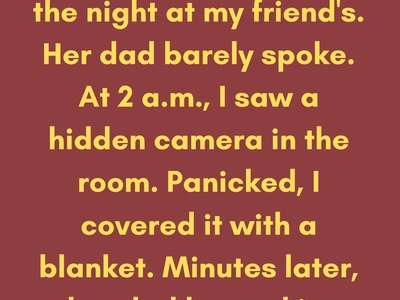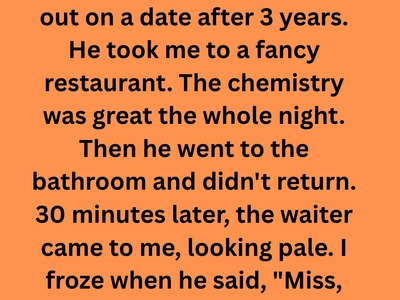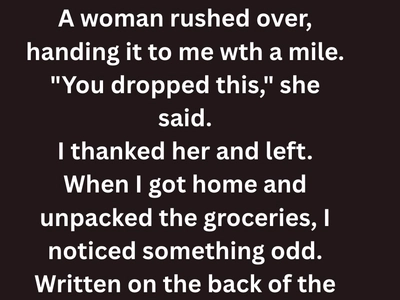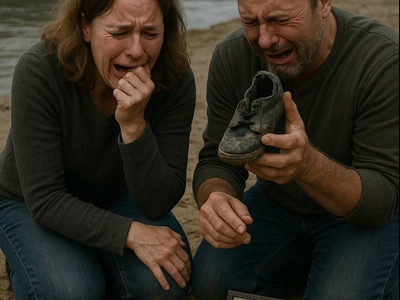The summer day started like any other. The sun warmed the tin roofs and the dust on the road shimmered in the heat. The market closed early because of the heat and because people wanted a quiet afternoon. Chickens scratched under the shade of a mango tree. A dog slept on the step of the tea shop with one ear twitching at flies. Down by the lake, dragonflies hovered over the reeds, and the water sat wide and still in a lazy green bowl. The village had always used the lake as a mirror for the sky, a place where the children chased each other and kicked their sandals off to splash along the edge. People said the lake wasn’t deep. They said it was safe, as long as you stayed near the shore.
The boy loved the lake. He was six. He had a narrow face and big eyes and a laugh that sounded like a bell. He liked to run, and he liked the feel of wind on his cheeks when he moved fast. He had a favorite ball that was bright red, and he liked how it looked in the light—too red to be real, like a cherry candy. His mother told him to stay where the reeds ended. His father told him to be home for dinner and not to make them come looking. The boy nodded. He was good about rules in the way children are when they believe the world is kind. He had eaten rice with egg and a little fish sauce, wiped his mouth on his arm, and asked for permission to go play. His mother waved him on. His father, coming back from the workshop, lifted the boy by the armpits, spun him once, and set him down again with a playful groan, pretending the boy was heavier than the sky.
He ran off with the red ball tucked under one arm, a single sandal flapping on his small foot, the other carried in his free hand because he had been told not to lose them again. His mother watched him go and felt no fear. How could she? The lake had watched generations of children learn to skip stones and tease fish. Nothing bad happened at the lake.
The afternoon grew thick and slow. Cicadas screamed from the tamarind trees. A scooter sputtered up the road and then sputtered down again. The old men in the tea shop argued about whether the rains would be late this year. The fan in the corner clicked as it turned. Someone told a joke and someone laughed like a cough. A woman balanced a basket of green bananas on one shoulder, the curve of her spine like a bow. Time spread out like a blanket. Nothing seemed urgent or sharp.
It was the kind of day that feels like it will last forever. And then, all at once, forever was gone.
The boy did not come home for dinner.
His mother called from the doorway. She called again, a little louder, then louder still. She walked to the corner where the lake road began and shaded her eyes with her palm. She saw two girls in braid ends, each holding a piece of sugarcane, and she asked them if they had seen her son. They shook their heads. Her voice began to rise and crack. She called her husband, who was sorting nails into jars at the workshop, and the nails clinked on the bench as he stood up too fast. They both walked quickly, then more quickly, then they were running, both of them running toward the lake.
It is strange how quickly a normal day can turn into a nightmare. One minute you are tasting the salt on your finger as you test the soup; the next minute you are looking at the lake and seeing only the places where a small body might disappear.
People came without being asked. The village works like that. Someone told the neighbor, who told the aunt, who told the man on the motorbike, who told the woman selling lottery tickets, and then everyone knew. The first thing they found was not a body and not a note and not a clue, only a little sandal drifting like a leaf, turning a slow circle near the reeds. The mother let out a sound that did not seem human. The father waded in up to his knees and grabbed the sandal and kissed it and then threw it hard at the shore. He tore off his shirt and went deeper.
They started to search. It was clumsy at first—men with bamboo poles, women shouting the boy’s name into the narrow inlets, the mother stumbling along the shore, falling, standing, falling again, as if her legs were not part of her. By evening, the police had come from the commune office. They brought dogs with serious faces. They brought long coils of rope and a small boat that had to be pushed, not rowed, because the oars squeaked and the officer wanted silence to listen to the water. Divers from a nearby town arrived with wet suits in a plastic tub. They put on masks and slipped into the grey water.
Night fell and no one left. Lanterns appeared like stars on the ground. People brought food and tea and watermelon slices and a jar of pickled mangoes, but almost no one could eat. The dogs sniffed the shore and then whimpered and barked at the reeds. The divers came up again and again, shaking their heads. The boat moved in slow patterns, slicing triangles and squares into the lake. Someone said maybe the boy had wandered away, maybe he’d gone to see a cousin or follow a butterfly into a field. Someone else said he would never do that without telling his mother; he was a good boy. Someone asked if there were any strangers in the village today. Someone else said they had seen a white van but couldn’t remember when or where. Voices rose and fell. Hopes rose and fell with them.
Three days and three nights passed like this. The search didn’t stop. The sun went down and came up and went down and came up. The mother’s eyes seemed stuck in a wide stare. The father aged in a weekend. His hands shook when he tried to hold a cup. Neighbors who had argued for years shared cigarettes in the dark, their words small and soft. The divers explored every meter they knew how to reach. The dogs circled until their paws bled. People poked at shadows with poles. They pulled up branches and plastic bags, a rusted kettle, a long-dead fishbone. They did not pull up a child.
It is hard to describe that kind of emptiness. It is an emptiness that has weight. The more the search went on, the more the lake seemed to swell with secrets. Children were told to stay inside. The tea shop closed early. The temple bell sounded longer than usual. People kept their voices low, like the village itself was ill and needed rest.
The rumors grew in the shadows. At first they were gentle rumors. Maybe he fell into a hole and got stuck under a root. Maybe he crawled out and is lost in the fields and will come home once he hears the rooster. Then the rumors grew sharper. The lake isn’t deep, people said. If he drowned we would have found him. A man leaned against a tree and said, Maybe he was taken. A woman, plucking the ends off long beans, said, By whom? The man shrugged. By someone who needed a child. These words traveled faster than the dogs, faster than the boat. The words wrapped the mother like wire. The father hit the table with his fist and made the tea jump in its cups. He said he would find whoever started the rumor and make him swallow it. He said his son was not a rumor. He said his son was not a story people told to pass the time. He said many things. None of them changed the lake.
By the seventh day, the house felt like a box with no air. The boy’s mother had not slept. She had not eaten more than a mouthful in each twenty-four hours. She stood and sat and stood again, like she could separate herself from the heavy weight by moving faster than it. The father did small chores with great force—swept the floor like it had done something wrong, washed a pot that was already clean. Friends and relatives came and went, bringing kind words and silence. The grandmother sat in a corner and whispered the boy’s name to her folded hands.
When a child goes missing for seven days, people. in the village begin to talk about calling the child’s soul home. There is a way to do it. The old women know what to set on the tray. The monk knows where to place the incense sticks and how many times to strike the bell. The family ties a red thread at the gate. They put out a bowl of clean water and some rice and a little sweet cake, and they call. They call softly, because souls do not like to be shouted at. They call from the gate and from the shore and from the place where the child last laughed. If a soul hears and wants to come back, they say, it can find the way.
They were getting ready for this, because hope has many shapes and this was one of them. And then, by chance or by grace, a neighbor remembered a small thing. He lived by the lake. He kept a camera pointed at his front gate to watch his garden. It was a simple camera with a wide eye and a forgetful brain. It recorded over itself every few days. The neighbor scratched his head and said maybe it had seen something. Maybe it hadn’t. But it did not hurt to check. Nothing hurt more than not knowing.
The police and the family crowded into his living room. The neighbor set a little stool in front of the small television and plugged in the cable. He turned the camera’s memory out onto the screen and fast-forwarded through a familiar world: a cat stretching, a woman carrying laundry, two boys on a bicycle, a man on a motorbike wearing a hat too big for his head, a gust of wind making the bougainvillea shake like a pink fountain. The old men stood outside the window and tried to see past their own reflections. Someone’s phone buzzed and no one answered it. The room held its breath.
At 5:21 in the afternoon, on the day the boy had vanished, a small figure appeared at the bottom of the screen. He was holding a red ball and running like he had in the morning, eager and light. He crossed the edge of the frame along the lake shore. The lens made him look thinner and smaller, reduced by the glass. For a second, the people in the room felt joy because there he was, moving, alive. Then another figure entered the frame behind him. This figure was taller. It moved with a sort of contained energy, a tension like a string pulled tight. The face wasn’t clear, but the shape was enough. The figure closed the distance. The boy didn’t seem to notice. He was busy with his own feet, his own shadow, his ball. The tall figure reached him, put two hands on his small back, and pushed hard.
There was no sound on the video, only the sight of the boy stumbling forward. He stood on the slippery edge, arms wheeling, and then he went over the side. The tall figure stood still, looking down, not reaching, not calling, not moving. After a moment that felt longer than a year, the figure turned and walked away, a calm walk, the walk of someone who had just put down a bag at a doorway and remembered another errand. The child did not come up again on the screen. There was only the water with its strange habit of appearing calm.
The room was silent long after the clip ended. The mother’s mouth opened, but nothing came out. The father pressed his fingers into the table so hard the skin went white. Someone cried out in the yard. The neighbor crossed himself without thinking and then felt foolish for making a sign he only half believed. The police officer who had the habit of chewing gum took the gum out and put it into a tissue as if he were afraid to chew in front of the dead.
It is one thing to lose a child to an accident. It is another thing to watch harm happen. It is another thing again when the person who did it is family.
They watched the clip again and again, trying to find a different ending inside it. There was not one. There was only a tall figure who, when the face was paused, when the light caught just right, when the angle shifted slightly, looked like someone they all knew. He was the boy’s uncle. He was the father’s younger brother. He had eaten at their table and laughed with his nephew and once, only last week, had hoisted the boy onto his shoulders to let him reach a mango.
The police went to find him. He did not run. He was at his house, folding a shirt. He looked tired, as if he had not slept in a while. When they told him why they had come, he raised his eyebrows, said he didn’t know what they were talking about, and then shrugged as if the air were heavy. He came without a fight. The village followed, a wave with faces, some angry, some confused, some afraid. They did not shout at him because something in the video’s quiet had filled all of them. A quiet like a lid.
Back at the station, the questions began. But they had already been answered, at least the first ones. The why took longer. Why is always longer.
Officials went back to the lake. They brought a geologist from the city. The man studied old maps and new maps and lines on a screen. He stood at the shore and pointed to a still patch near the center, not far from where the boy had gone over. He said the lake had a habit. He said there was an underground channel, a throat in the lake leading to a place no one thought about, a deep rock pit left behind by old work that had died before anyone in the village was born. It was not on the old maps the divers had used. That made the first search almost hopeless from the start. The lake, shallow in most places, hid a hole in the middle, a mouth that swallowed anything that came near. If something fell into that hunger at the wrong point, it could be pulled down and away, dragged into dark rock and left there, beyond reach. People listened and did not know whether to be comforted by the science or more afraid of the truth. The lake’s face was a lie. But a lie that pretended to be a mirror is still a lie.
The uncle said little. When the officer asked what he had been doing at the lake, he said he had gone for air. When the officer asked whether he had seen his nephew there, he said he didn’t remember. The officer looked at the report and then at the camera stills and was quiet. He put the paper down like it weighed a kilogram. He asked the uncle to tell the truth. The man stared at the floor and began to talk, not steadily but in bursts, a word here, two words there, as if pulling each one up from deep water.
He owed money. He had borrowed from people who do not write receipts. At first, he said, the interest was like a mosquito bite, just a small annoyance. Then the bite swelled, and then it festered, and then it felt like something was chewing at his bone. He had tried to pay and could not. The people who lent him the money had stopped speaking softly. They had said things that made the nights long and the daylight thin. He was desperate. Desperate is a word with many rooms in it. In one room you sell your motorbike. In another room you ask your friends for help. In the darkest room, you imagine things you cannot imagine in the light.
The house the family lived in had been put in the boy’s name when he was born. People do that sometimes, for luck and for safety. Papers were needed. Not many people understood the papers well, and the uncle understood them less than most. He believed that if the boy was declared dead, a piece of paper could be made—fake but believable—and that paper could be used to move the house into his own hands, or at least into hands he could direct. He believed, in other words, that a certificate could solve a problem he had created with his own poor choices. The law doesn’t really work like that, but fear often makes a messy map of the world. He did not see how wrong and cruel the plan was. Or he saw it and did not care because fear is sometimes hungrier than shame.
He didn’t say the whole plan all at once. The pieces dropped like stones into a bowl. He had followed the boy to the lake. He had seen him running with the red ball. He had thought this would be quick, quiet, simple. He had trained his mind to think of it as an act without a human attached, a move in a game. But the sight of the small back under his hands had shocked him. He had done it anyway, because he had decided already and because some decisions, once made, push you forward like a wave. He had watched the water for a few seconds because he could not understand what he had done, could not match his idea with the reality of a child moving out of sight. Then he had walked away, as if distance could undo the thing. He had not slept since.
The village heard pieces of this, not all of it. Information in a place like this rolls around until it is made bumpy with extra bits. What they knew was enough. The boy’s parents learned the same day. The father fell to his knees as if someone had cut strings. The mother made a sound like a kettle that cannot release steam. She asked a question to the ceiling and to the floor and to the trees outside and to anyone who could hear: Why? Why would my own brother do this? Why would our family be the place where harm came from? No one had an answer sized to the hole in their hearts.
The uncle was taken away. The law would do what it does in these cases, slowly and with documents and with sentences measured in years and numbers none of the villagers really believed in because time seems odd when you think about days without a child. People did not go to the lake in the late afternoon anymore. It was not that they believed in ghosts. It was that they had learned something about the lake that changed the way they saw it. The water still lay quiet, pretending innocence. The reeds still whispered. The fish still made their circles under the surface. But the place felt like a lie now. It felt like a mouth that had once told you a secret and then turned and bit your hand.
The red ball was never found. The sandal on the shore dried and curled like a leaf left in the sun. The boy’s room stayed as it was—the little pillow with the yellow case, the blanket with faded lions, the glass marble under the bed that had rolled there the week before and not been noticed. His mother began to talk to him in the morning and at night, telling him small things that did not matter to anyone else. She told him the price of tomatoes that day and the color of the sunset. She told him about the bird that got into the kitchen once and could not find its way out. She said she was sorry for not following him to the lake that day, as if such a thing should have been possible, as if a mother can live two lives at once. His father sat on the step at dusk and watched the road for a long time, the way a sailor watches the horizon even when he knows there is no land. Sometimes he thought he saw a small shape at the corner and his heart leaped and then did not.
The village moved around the loss like a person limping. The tea shop stayed quiet. The children played in courtyards instead of by the water. The old men stopped telling stories about the lake’s kind spirit. People remembered times when the uncle had been generous—he once fixed a broken gate for free, he once carried a bag of rice for an old neighbor—and they did not know what to do with those memories now that they sat next to this new truth. Someone said people can be both things. Someone else said he would never forgive. Another said forgiving is not for the sake of the forgiven but for the one who forgives, and that sounded wise but felt all wrong in the mouth. The grandmother got more quiet. She counted her beads. She stopped looking at the door when it opened.
The police wrote their report. They listed times and actions and statements and made a neat shape for the whole terrible thing. They did not write the smell of the lake after a hot day. They did not write the way the mother’s voice changed. They did not write the weight that fell on everyone’s chest when the video showed that push. Reports cannot hold those things. They cannot hold the way a lake becomes different water because a truth comes out. They cannot hold what people carry, which is not the facts but the shape the facts make inside them.
Some weeks later, a young teacher came to the village school and talked to the children about safety. She spoke in a brisk voice about staying near grown-ups and not trusting anyone who asked them to go somewhere alone. She used words like stranger and danger, which did not cover what had happened because this harm had not come from a stranger. The children watched her and some nodded and some stared at the floor. One child asked if it was okay to still like the lake if they stayed far back. The teacher said yes, but she looked unsure, because she too had learned something about places and about people that had shifted the ground under her feet.
That autumn, a group of men who used to fish at dusk went out at midday instead. They sat in their boats and did not talk much. They watched their floats and sometimes pulled in a fish and sometimes nothing at all. The lake looked the same in the sun, which almost felt like a betrayal. A visiting cousin asked why no one swam any more and was met with silence. Then someone said, quietly, It’s not the water. It’s what the water showed us.
In the evenings, the temple bell still rang, and the sound crossed the water and reached the houses. The sound was the same as before, but it felt different. It sounded like someone calling a name they used to say every day. Men lit cigarettes and then forgot to smoke them. Women hung laundry and took it down still damp because a cloud came out of nowhere and sat over the village like an extra ceiling. There are many ways grief lingers. Sometimes it stands in doorways. Sometimes it lies under beds. Sometimes it sits on the shore of a lake like a fisherman who has no line in the water, watching nothing.
The red ball became a story. The very young children who did not remember the boy would point at a bright fruit and say, like his ball. The older children would fall silent at that. You could tell, when you visited, which families had spoken openly about it and which had not by the way their children’s eyes moved when they passed the lake. The ones who knew looked away quickly, as if staring was rude. The ones who had only heard whispers looked for the hole as if they could see it, as if evil always left a visible mark.
As for the uncle, his name stopped being used in houses. People called him that man or the younger one. His mother, the boy’s grandmother, kept his photo in a drawer under a sweater and sometimes took it out and looked at it and then put it back, and each time she opened the drawer she seemed to age a month. It is a strange thing to be the mother of sons when one son has harmed the other son’s child. Her love did not know where to go. She loved both her sons as if love could balance a scale that had already tipped and fallen. She cried in private so the families would not have to carry her tears as well as their own.
The village learned the details of the debt slowly, in pieces, and each piece cut. It does not matter how much money, someone said at the tea shop; not when measured against a child. The man selling lottery tickets nodded and said he used to think money was the largest thing in the world until he learned about loss. The woman peeling long beans said she had always believed harm came from outside—the road, the city, the other—but now she did not know where to place her fear. A bond that breaks inside a family makes every door a question.
On the anniversary of the day the boy disappeared, the family did a simple thing. They cooked the rice he liked, loosely, with a bit of fish sauce the way he used to ask for it. They placed a small bowl on the family altar with the fruit he liked—guava, cut into quarters. They set out the sandal; the other had never been found. They lit three sticks of incense. The smoke curled and looked like water under moonlight. The mother spoke without crying for the first time in a long while. She said his name and said that he had been loved every day of his life. She said she did not know if he could hear, but she spoke anyway because love needs to be said out loud even if no one answers.
There were other small changes. The neighbor who had remembered the camera bought another one and set it at a different angle, not because he thought something would happen but because that is what people do after tragedy—they adjust the angle and hope. The tea shop owner added a small sign next to the door that said Please watch your children near the road. The school put up a new fence, not tall but new and clean, the way a bandage is clean. None of these things would have stopped what had happened, and everyone knew it. They did them anyway, because action helps when nothing helps.
Sometimes the boy’s mother walked past the lake in the morning when the air was thin and the light was kind. She kept to the road. She looked at the water only in reflections—on a pan, on a window, in a spoon. She noticed the reeds had grown taller. She noticed a heron once, white and still, as if painted and then set to dry. She noted how the lake had a way of keeping its secrets without any effort at all. She thought of all the stories people had told about it over the years—about a spirit that saved a drowning child long ago, about a lucky fish that jumped into a boat on the day of a wedding, about a ghost that cried for rain. She stood with her hands crossed in front of her like a schoolgirl and thought: We were wrong about what to fear.
If you had asked her then what she feared, she would have said she feared the next time someone came to her door with their face changed by bad news. She would have said she feared the small shift in people’s eyes when they decide to protect themselves at the cost of someone else. She would have said she feared cupboards that close on truths and lies that float like leaves and people who will push a small back and then watch and walk away. She would have said she feared the shallowness of a person’s heart when fear and greed carve it out. She would have said the lake looked deep but was shallow compared to that.
The lake kept its color. The sky kept its stars. The mango tree kept its fruit. The dog at the tea shop slept again like dogs do, with one ear twitching at flies. Life has a stubborn habit of continuing. Babies are born. Rice grows and is harvested. People repair their roofs before the rains. There are jokes again, and the old men go back to arguing about weather. But something in the village remains altered, like a string tuned to a slightly different note. It is not that people stop trusting altogether; it is that they trust and also look twice, because light has revealed that people can be two things at once. They can hold a child on their shoulders and they can push that child into the water. They can smile at a family altar and they can think a piece of paper will make wrong into right. They can be kind and they can be cruel, and sometimes they can be both in the span of a week.
This truth is heavy. It sits beside the other heavy truths—the ones about illness and poverty and wind that breaks roofs. It is heavier than those because it makes the world smaller. If you cannot trust the circle closest to you, where do you stand?
In time, the lake will be only a lake again. People will forget to avoid it and then remember and then forget again, because memory has tides. A young couple will take photos on its shore at sunset. A child not yet born will jump from rock to rock at the edge and laugh and be pulled back by a careful hand. The village will, after all of this, continue to be a place where people raise children and grow food and complain about prices and thank the sky for rain. The wound will become a scar, and the scar will be part of the village face and not the whole of it. This is not a kind of forgetting; it is a kind of mercy.
Yet there will always be a moment, usually at dusk, when the water is flat and the sky is a single color and a breeze lifts the edge of a shirt, when someone passing by will think of a small boy with a red ball and a man who looked down and walked away. And in that moment, the person will hear, as if whispered by the reeds or murmured by the bell across the water, the lesson everyone learned on that hot, slow day when forever tipped over. The scariest thing is not the lake’s depth. It is the shallowness a human heart can fall to, and how quiet that fall can be.






